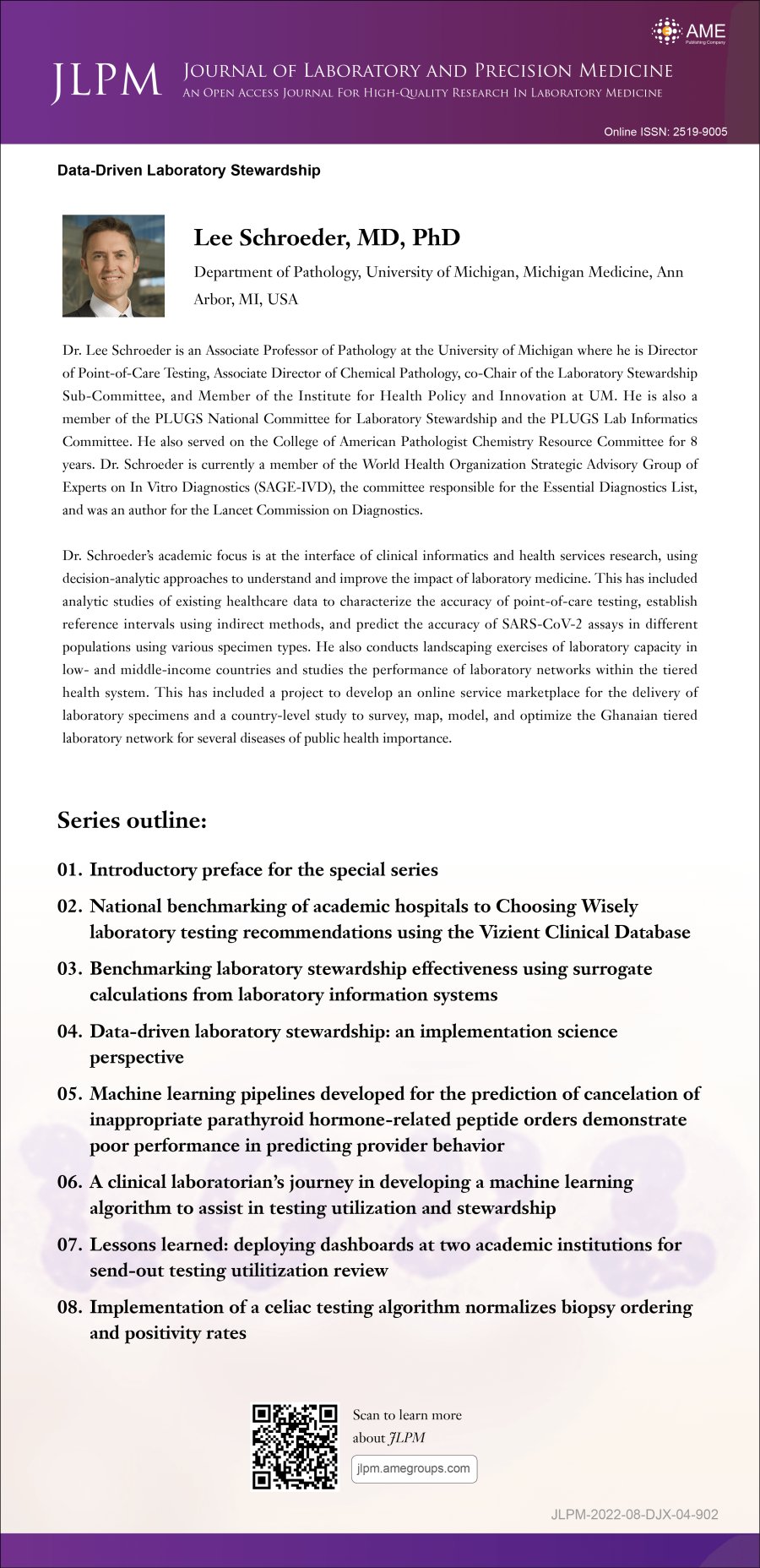
This Series on “Data-Driven Laboratory Stewardship” is edited by Dr. Lee Schroeder from Department of Pathology, University of Michigan, Michigan Medicine, Ann Arbor, MI, USA
Lee Schroeder, MD, PhD
Department of Pathology, University of Michigan, Michigan Medicine, Ann Arbor, MI, USA
Dr. Lee Schroeder is an Associate Professor of Pathology at the University of Michigan where he is Director of Point-of-Care Testing, Associate Director of Chemical Pathology, co-Chair of the Laboratory Stewardship Sub-Committee, and Member of the Institute for Health Policy and Innovation at UM. He is also a member of the PLUGS National Committee for Laboratory Stewardship and the PLUGS Lab Informatics Committee. He also served on the College of American Pathologist Chemistry Resource Committee for 8 years. Dr. Schroeder is currently a member of the World Health Organization Strategic Advisory Group of Experts on In Vitro Diagnostics (SAGE-IVD), the committee responsible for the Essential Diagnostics List, and was an author for the Lancet Commission on Diagnostics.
Dr. Schroeder’s academic focus is at the interface of clinical informatics and health services research, using decision-analytic approaches to understand and improve the impact of laboratory medicine. This has included analytic studies of existing healthcare data to characterize the accuracy of point-of-care testing, establish reference intervals using indirect methods, and predict the accuracy of SARS-CoV-2 assays in different populations using various specimen types. He also conducts landscaping exercises of laboratory capacity in low- and middle-income countries and studies the performance of laboratory networks within the tiered health system. This has included a project to develop an online service marketplace for the delivery of laboratory specimens and a country-level study to survey, map, model, and optimize the Ghanaian tiered laboratory network for several diseases of public health importance.
Series Outline:
- Introductory preface for the special series
- National benchmarking of academic hospitals to Choosing Wisely laboratory testing recommendations using the Vizient Clinical Database
- Benchmarking laboratory stewardship effectiveness using surrogate calculations from laboratory information systems
- Data-driven laboratory stewardship: an implementation science perspective
- Machine learning pipelines developed for the prediction of cancelation of inappropriate parathyroid hormone-related peptide orders demonstrate poor performance in predicting provider behavior
- A clinical laboratorian’s journey in developing a machine learning algorithm to assist in testing utilization and stewardship
- Lessons learned: deploying dashboards at two academic institutions for send-out testing utilitization review
- Implementation of a celiac testing algorithm normalizes biopsy ordering and positivity rates
Disclosure:
The series “Data-Driven Laboratory Stewardship” was commissioned by the editorial office, Journal of Laboratory and Precision Medicine without any sponsorship or funding. Lee Schroeder serves as the unpaid Guest Editor for the series.
